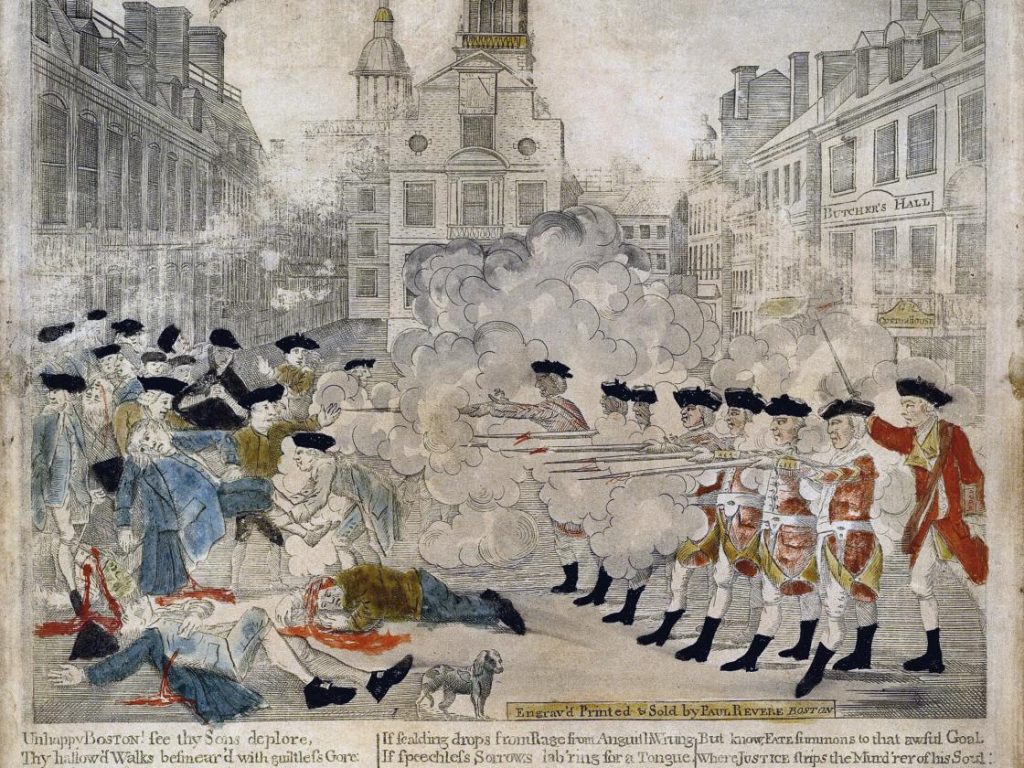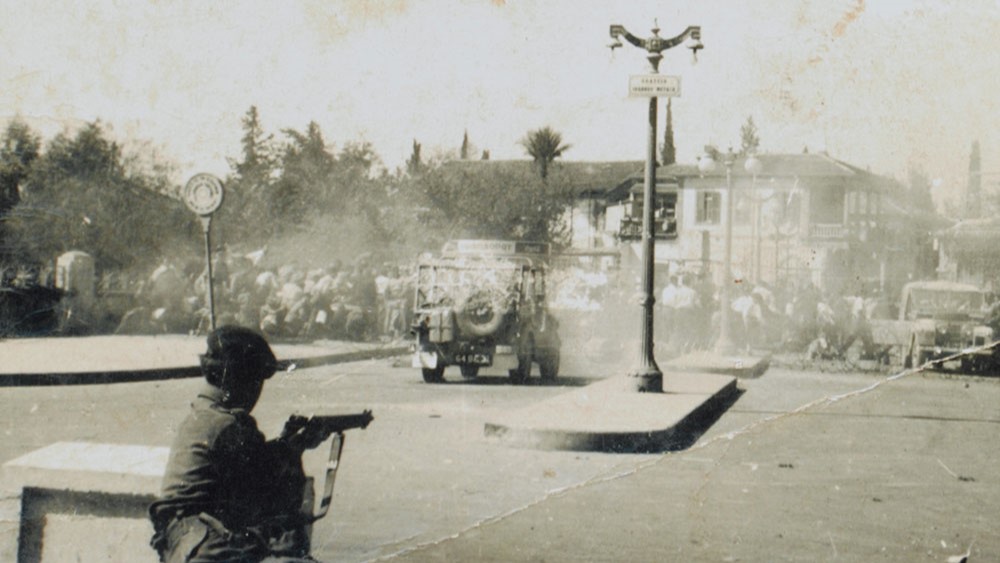As we commemorate the heroes of 1821 on March 25, on April 1 is the commemoration of another struggle, this time against the British. A struggle shared by many peoples globally from the Americas of the 1760s to the twentieth century liberation of Africa, Asia and the Middle East – all from British occupation.
Instrumental to the war was theΕθνική Οργάνωσις Κυπρίων Αγωνιστών (EOKA).
EOKA was inspired by anti-colonial anti-British movements, dating back to the 1760 Sons of Liberty of the America Revolution, 1952 Kenya uprising, Indian Revolt, 1913 Irish Citizen Army of Ireland, United Resistance Movement (URM) of Israeli, amongst many others.
They were all citizen organised, clandestine, political and paramilitary organisations leading a military campaign, plus civil disobedience, demonstrations, disruptions, heroes to liberate their people. EOKA, like other revolutionary anti colonial movements, recruited school children, domestic servants, police, teachers and ordinary citizens to the cause.
As in 1760s to the 1960s, British strategy followed a similar pattern of brutal suppression, indiscriminate torture, concentration camps, death camps, hangings, detention and beating of children and women. In all instances, British brutality only encouraged the heroes to more daring deeds against the occupiers.
EOKA was part of a global movement which also took inspiration from the 1821 Greek War of Independence against Ottoman Turks and called for “enosis” with Greece.
The British attempt to divide the population, to “wedge” and disrupt the revolution had some success in India, Ireland and perhaps its greatest success was in Cyprus. It can be argued this has continued to this day.

In the 1760s, the British divided the settlers in the American colonies as they were to do in Cyprus between Turks and Greeks.
For the Americans it was all out war led by George Washington, a former British soldier armed, funded and supported by France, whereas EOKA practically stood alone.
Collective punishments by the British made EOKA even more popular and global sentiment stacked against the British, as it was a decade earlier when the British used the same tactics in India.
With its reputation as a “civilised” nation in tatters in India and Africa, Cyprus was viewed as Britain’s next toy of torture and terror.
The Greek Cypriot community was overwhelmingly in favour of Enosis with Greece. The struggle was fought in the villages, cities and mountains.
By late February 1956, the British suppressed a school children revolt that left one boy shot dead, closing down the entire school system. The death of children and unarmed protesters hit newspaper headlines globally. Former British-occupied territories in Africa, India and even the USA sympathised and related to what was happening in Cyprus.
Global public opinion was critical against the British, sometimes referring to them as “Europe’s aggressors.” The atrocities of the second world war were alive and well in the tool box of the British. This comparison with the Nazis was to have a profound impact on the British psyche and continues to this day.
The Church of Cyprus founded in 431AD and led by Archbishop Makarios became the public face of the revolution. Once the British could not pressure Archbishop Makarios, they kidnapped him and placed him on an airplane to fly him to the Seychelles on March 9, 1956.
In response, EOKA organised a week-long general strike followed by a series of attacks on British personnel including the Governor.
The British occupying forces kidnapped and beat school children, women, anyone who they believed was involved. Importantly, the United Kingdom released secret documents in 2012 showing indiscriminate torture and terror of the population designed to “scare” all into submission.
Under the Detention of Persons Law, passed on 15 June 1955, the British set up one of the tools they invented back in the 1890s in South Africa Boer War – the concentration camp. The inhumane conditions attracted comparison with Nazi camps and the International Committee of the Red Cross visited the camps to inspect the conditions.
On May 10, 1956, the first two EOKA prisoners were hanged. EOKA responded with the execution of two British soldiers.
The mountains of Trodos provided a fierce battle ground where 20 EOKA members were captured, at least seven British soldiers burned to death by accident.
On August 9, 1956, the British hanged three more EOKA prisoners then in November 1956, the Suez Crisis forced the British to move the occupying troops to Egypt. EOKA was to begin a wave of attacks that would become “Black November” for the British, with a total of 416 attacks, 39 killed, 21 of them British.
Although Governor Harding denied torture allegations, describing it as propaganda by EOKA, the 2012 UK secret dossier clearly shows the opposite.
British turned a blind eye to interrogators, many of whom were deliberately under-educated Turkish Cypriots who were against “enosis” and encouraged animosity between the two ethnic groups.
Torture included beatings, public floggings, forced standing, ice and drugs. Irrespective of the extent of the torture, Governor Harding failed to win over the Greek Cypriot population, as the British were seen as no better than the Nazis.
EOKA was accused of intimidating the population not to co-operate with the British. Declaring people as “traitors” to the cause became a hallmark of all these liberation movements.
This is a controversial aspect of the war of liberation, as it is the case with other anti-colonial organisations.
In all these instances, politics filter within, leading to the targeting of political adversaries and people they just did not believe were loyal to the cause.
In particular, the Communist Party of Cyprus (AKEL) and their supporters were targeted by EOKA.
In both Cyprus of the 1950s as the Americas of the 1770s, the British delicately fuelled this hostility to wedge their opponents. The stark difference with America and the Cyprus war of independence is the “divide and conquer policy.”
In the case of the Sons of Liberty, pro-British settlers were incited to scuttle the liberation movement. It’s generally believed the divide and rule tactic failed.
This was not so in Cyprus as the British openly tolerated and even armed the Turkish Cypriot paramilitary organisations. The British had deliberately set out to use the Turkish Cypriot community on the island and the Turkish government as a means of defeating EOKA.
British propaganda was targeted to scare the Turkish Cypriots that if the British leave, their safety could not be certain.
When Governor Hugh Foot arrived in Cyprus in December 1956, it was clear the British could not win the war of independence, their divide and rule policy was gaining momentum but not fast enough to keep the British as occupiers.
The British had begun a narrative to inspire the Turkish Cypriots to support their paramilitary armed groups. The Turkish Cypriot Resistance Unit, the Black Gang and Volkan appeared as early as May 1955. All of them were absorbed later by the Turkish Resistance Organisation.
EOKA avoided conflict against the Turkish Cypriots, however declassified UK records show how the provocation designed by the British led to intercommunal tensions and rioting in the towns of Cyprus, forcing the British to withdraw their troops from hunting EOKA up in the mountains and restore order in urban areas.
Unlike Sons of Liberty, who could count on the support of France to ensure the sacrifice for liberty could be sustained, as it has to this day with the USA standing as a beacon of liberty, this was not so for Cyprus.
Without a “France” to provide the backing, Cyprus and its heroes of the revolution continue the struggle.
The EOKA heroes deeds are part of history, an integral part of the islands fabric, a message to all peoples under foreign occupation that sacrifices are often essential and liberty is sacred. A lesson given to all humanity by the Sons of Liberty of the American, the Filiki Eteria of Greece, and the heroes of EOKA.

